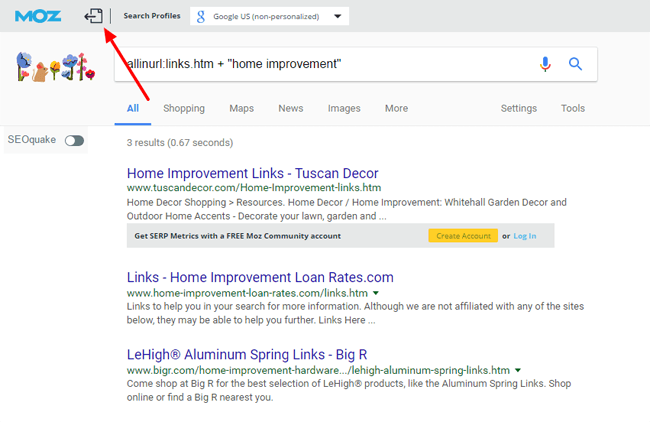Starting and Scaling Resource Page Link Building

Outreach link building comes in many forms, some more effective than others, but all of them are capable of securing a great link for your website.
While links have remained atop the list of most important ranking factors for several years, many business owners, marketing agencies and SEO companies struggle with link building. Today, we are going to explore resource page link building and how you can get started with the process, but first...
Why Resource Pages?
A good resource page is one, or many curated pages of outbound links on a website. The fact that the blog owner often finds, reviews and adds resources believed to best serve his audience makes them a trustworthy page on most sites.
Additionally, you can often find resource pages on aged, trusted sites, making them a great addition to your link profile. Before you can start your quest for resource page links, you need to have a resource that people consider link-worthy.
It All Starts with Content
Unlike other methods such as guest posting, the only value you are offering the person who is adding you to their site is the content on the other end of that link. To do this successfully you need to create informative, helpful and targeted content. We won't rehash the typical guidelines for creating great content here, but it is worth considering micro-content as part of your strategy.
Not every great piece needs to be a novel, sometimes, short and to the point works better. Not everyone wants to read that list of "893 awesome tools you must have for SEO". Micro-content is a trend we will start to see in 2017 and into the next couple years. Once you have your content on point, it is time to find people to share it with.
Finding Websites for Outreach
If you are doing outreach for just one site or even for a few sites in low volumes, the most simplistic method of finding resource pages in your niche is by using advanced search operators when conducting a Google search. Here are some common search operators that will help you in your search:
- inurl:resources + keyword
- inurl:links + keyword
- inanchor:suggest a resource + "keyword"
- "helpful links" + "keyword"
There are numerous combinations of operators and keywords you can use, check out this advanced search operator's guide. In case you aren't familiar, the purpose for search operators is to return on very specific search results, this will save you a lot of time when it comes time to narrowing the field. Resource page link building can be repetitive and time consuming, but there are several ways to expedite the prospecting process.
If you don't currently have the Moz toolbar installed, adding it to your browser, even with a free account with enable you to export search results from Google, giving you a prospect list.

Don't forget to change your search settings to display 100 results per page instead of 10 before you search.
Automating the Prospecting Process
If you are working on multiple sites or you are looking for a way to scale your resource page link building efforts, there are many tools that you can use to do this. Here are a few worth checking out:
- Scrapebox
- Link Assistant by SEO Powersuite
- Pitchbox
Scrapebox and Pitchbox will allow you to enter a combination of search operators and keywords, then will mine the search results at scale for resource pages. Both tools will let you sort the results and eliminate them based on domain authority. Link Assistant lets you enter your keywords and the program automatically creates the search operator combinations needed or you can enter them manually, as with the other two tools.
All three tools have several "how to" guides that will help you get started using the software. Once you decide on a method of finding the opportunities in bulk, you need to decide how to refine your list.
What Makes a Good Resource Page?
Is their one metric that you can count on to find good sites? No. One of the most common methods of sorting sites is by domain authority (DA). The problem with relying on that metric is that Moz, the source of DA, only indexes a fraction of the links that tools like Ahrefs or Majestic find and track.
On many occasions, you can find sites with strong, rapidly growing link profiles, but with a low domain authority. Finding sites like this increases your likelihood of success because those sites are getting pitched less often on average.
On the flip side, a high domain authority does not mean the site is good either. It has been shown that even spam links from automated link building tools can create high DA sites. If you are new to link building, check out this overview of Topical Relevance and Link Building to better understand how to start the selection process. Once you have a good idea of which sites are worth reaching out to, the pitch is where the magic happens.
Pitching Your Resources
If you use Link Assistant or Pitchbox, you are able to send your pitches from within those tools. Pitchbox has a library of pre-made templates you can modify for your resource page outreach. Pitchbox also allows you to schedule a series of follow up emails sent out in pre-defined intervals. If the person pitched responds, the automated follow ups stop. Consistent follow up is critical for outreach link building. If you don't have a template to work from, here is a simple email you can customize and send to your prospects:
Hello (Name),
My name is (Name) and I ran across your site several times recently while doing some research on (insert topic)
I noticed you had some great resources listed on (topic) and they were very helpful, thank you!
I recently finished up my guide on (topic) and so far, we are getting great feedback. Would you be interested in taking a quick look to see if you think your audience could benefit from it?
It would just take a couple minutes and either way, your feedback would be greatly appreciated as you are clearly well-versed in (topic)
Thank you,
Name
Once the person replies, then you send them a link to your guide AND if something new has been shared by them socially, added to their site, or you get an update about them on LinkedIn, mention that in the next email so they can see you actually "follow" their site.
Now What?
I have seen a lot of sketchy content, poorly executed outreach campaigns, and more than my fair share of terribly ineffective strategies being used by link builders or business owners. Even so, a weak pitch sent to 100 sites will give you a 100 percent better chance of earning a link than not taking action. Take the information above, read up on the tools and how to find good links sources, and then put it into action.
Over to You...
Have you tried resource page link building? Tell us about your experience with it below.









